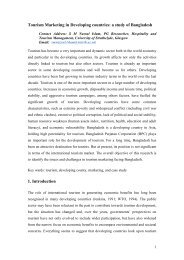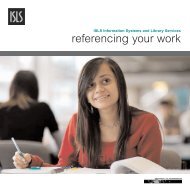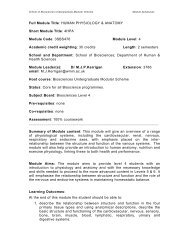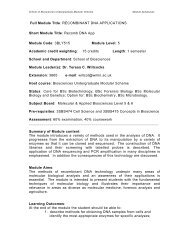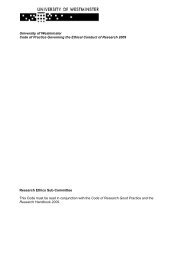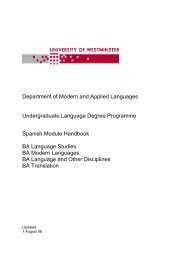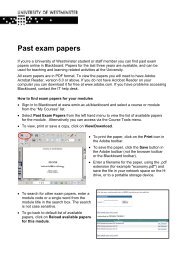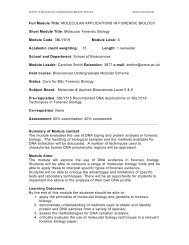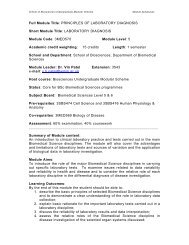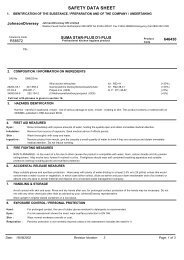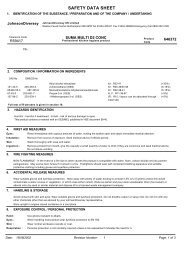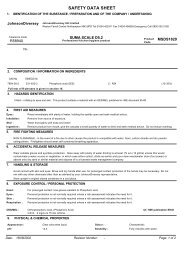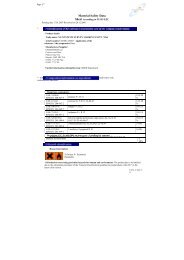CONTENTS 1. Introduction 1.1 Course Outline 1 1.2 Introduction ...
CONTENTS 1. Introduction 1.1 Course Outline 1 1.2 Introduction ...
CONTENTS 1. Introduction 1.1 Course Outline 1 1.2 Introduction ...
You also want an ePaper? Increase the reach of your titles
YUMPU automatically turns print PDFs into web optimized ePapers that Google loves.
eference, or government publications). All must be properly referenced (as described in section<br />
1<strong>1.</strong>4 of this handbook) not only in a bibliography but also by quotation marks in the text or in a<br />
footnote.<br />
NB An essay or report cannot consist merely of summaries of other people’s ideas and texts. You<br />
must demonstrate your own critical engagement with, and evaluation of, the material you are<br />
presenting or discussing.<br />
Plagiarism Detection Service<br />
To help eradicate plagiarism and thereby protect the value of your qualification some modules<br />
include the requirement that your coursework must be submitted electronically and checked by the<br />
UK universities’ JISC Plagiarism Detection Service.<br />
You must submit your coursework in electronic form to the JISC system which will check your work<br />
for its originality. Students should seek guidance from their <strong>Course</strong> or Module Leader or follow the<br />
instructions on the Online Learning Website www.wmin.ac.uk/oll or the Academic Registrar’s<br />
Website www.wmin.ac.uk/academicregistrars , or their School website, where appropriate.<br />
10.9.2 Working Together<br />
Discussing ideas is part of academic life at University and you are allowed to exchange sources<br />
and references. However, you must recognise the distinction between sharing ideas, and<br />
collusion. This means that you must not work with others to the extent of exchanging written<br />
materials you have prepared, such as notes or drafts of assignments. If these types of materials<br />
are shared this will be regarded as an assessment offence for the person who lends the material<br />
as well as for the person who uses it. Your own work must be regarded as your own property and<br />
you should protect it. If you are working in a shared space log off from the PC you are working<br />
on whenever you take a break so that others cannot access or copy your work; take care to<br />
destroy printed drafts or copies of work, rather than just discarding them; and, don’t give your<br />
work to others on disk. If you are working on a group assignment make sure you understand the<br />
allocation of responsibilities between yourself and the other members of the group.<br />
10.9.3 Cheating in exams or in-class tests<br />
You must not communicate with other students during an exam or test. You must not take into<br />
the exam or test room any materials, notes or aids other than those officially authorised in the<br />
examination paper. If an invigilator observes you with any prohibited materials, notes or<br />
equipment, or observes you communicating with another student, you will be prosecuted in<br />
accordance with Section 18 of the University Academic Regulations.<br />
DPI_Hbook 35 ©University of Westminster



